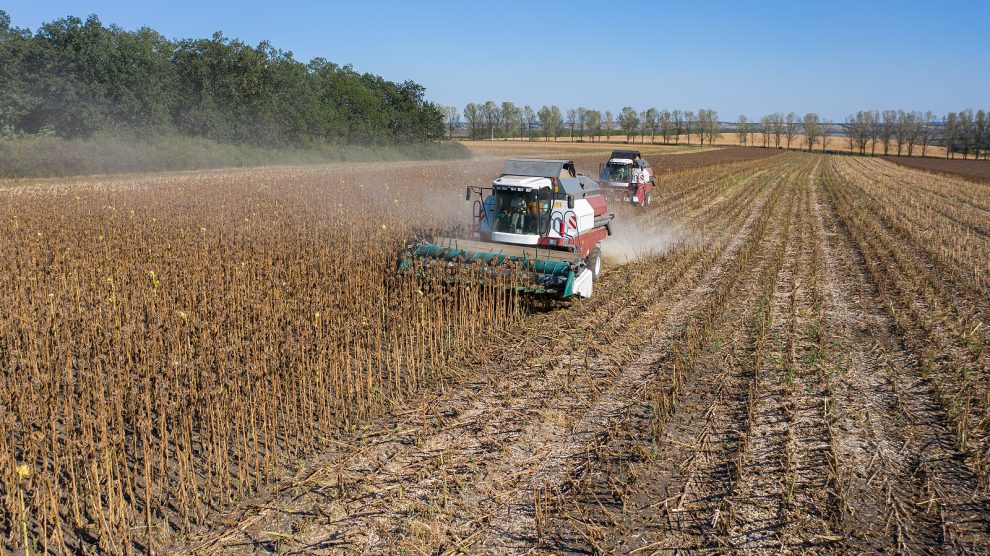Moldova’s farmers are set to receive a boost from a new project that should bolster the competitiveness of the country’s agricultural market.
Moldova’s Association Agreement with the European Union enables local businesses to export to European markets. However, many local agro-food producers are unable to comply with the bloc’s strict animal health and food safety requirements. This can be attributed to the lack of specific legislation and monitoring programmes that are EU-compliant.
A new phase of the International Finance Corporation’s (IFC; the investment arm of the World Bank) Investment Climate Reform Project, is aiming to unblock Moldovan agricultural exports.
- For Moldova, a fresh start
- Grand Theft Democracy
- Why it’s time to ditch the ‘pro-European’ and ‘pro-Russian’ epithets
Part of an agreement between the IFC and Moldova’s Ministry of Agriculture, Regional Development and Environment, the project will be implemented in partnership with Sweden’s government agency for development cooperation, SIDA.
The IFC has already helped Moldova’s government to streamline agribusiness regulations during the first phase of the Investment Climate Reform Project.
Building on these efforts, IFC now aims to create a conducive business environment in the country, introducing the necessary legislation, including in areas of products safety, animal by-products and waste management, and food traceability. This will help create a solid enabling environment for agro-food producers to boost exports across countries, including the EU market, currently closed to products of animal origin from Moldova.
‘A robust and competitive sector’
“I am confident that the project’s successful implementation will contribute to a robust and competitive agricultural sector in Moldova, opening up the EU market for products of animal origin, including lab capacity, IT systems, and regulatory framework regarding traceability and safety,” says Moldova’s Minister of Agriculture, Regional Development and Environment Ion Perju.
In Moldova, one of many challenges is the lack of available data on potential investees and business partners.
To address this issue, IFC will also help create a digital Public Depository of Financial Statements, providing public access to financial statements of both private and state-owned companies. This will ensure increased transparency of the process, drawing more investments to Moldova’s agribusiness sector and creating commercial links to the business community.
“One of IFC’s strategic priorities in Moldova is to strengthen its agribusiness sector,” says Jason Pellmar, IFC’s regional manager for Ukraine, Belarus, and Moldova. “Our aim is to help the nation take fuller advantage of the Deep and Comprehensive Free Trade Agreement with the EU. This will allow the country to explore other international markets at lower cost and effort. Digital solutions will not only create incentives for businesses to establish ties with Moldovan companies, but also encourage and retain investments, helping foster competitive markets and accelerate economic growth.”
Pillar of the economy
Agriculture remains the main pillar of the Moldovan economy. According to the US government’s International Trade Administration (ITA), farmland covers 75 per cent of the country’s territory. The agricultural sector employs over 27 per cent of country’s labour force and agricultural production usually accounts for around 12 per cent of Moldova’s GDP.
Combined with the food processing industry, the sector represents more than 16 per cent of GDP and approximately 45 per cent of total exports.
The country boasts favourable soil resources and conditions for agricultural production. The black fertile soil in Moldova is ideal for growing fruit and vegetables, while moderate continental climate with short and relatively warm winters and long hot summers permits early planting, giving producers a strong competitive advantage.
Moldovan farmers have experience in a wide variety of agricultural activities, and these factors, combined with affordable labour costs, especially in rural areas, favour the production of high-yield, labour-intensive crops that are competitive in export markets.
According to the ITA, investment opportunities include orchards, vineyards, wineries, vegetable growing in open fields and greenhouses, and industrial crop production, while processing is also an important and attractive investment category.
Equipment and technology are required for storage, packaging and long distance transportation of fresh products; drying; instant freezing; canning; and the production of ingredients and additives. Other related activities of interest include input supplies, while irrigation, packaging and processing equipment, and agricultural machinery offer other opportunities, as well as production and trade of planting materials and agribusiness leasing.
There is also increasing demand for organic products, creating opportunities for organic farming. Other niche opportunities include services for product quality and safety standards in wineries; re-equipping of wineries; vineyard replanting; and expansion of wineries into the tourism industry.
Unlike many news and information platforms, Emerging Europe is free to read, and always will be. There is no paywall here. We are independent, not affiliated with nor representing any political party or business organisation. We want the very best for emerging Europe, nothing more, nothing less. Your support will help us continue to spread the word about this amazing region.
You can contribute here. Thank you.



